Who can show up?
Placement at home under a care order
May I introduce you to proportionality: Balancing rights and responsibilities in law
The Welsh Language and the Court of Protection
Anticipating the reasonableness of responses – time-specific capacity in action
ASB Case Reviews: updated statutory guidance
The meaning of ‘vexatious’ / ‘manifestly unreasonable’
Martyn's Law marks a new chapter in school safety
Deprivations of liberty and young offenders
Litigation as stewardship: How UK pension funds including LGPS are shaping corporate accountability
Revisiting Cheshire West
Wardship and Inherent Jurisdiction: Decisions involving competent 17-year-olds
Public children law case update – Autumn 2025
Post-placement contact under the Adoption and Children Act 2002
Six months in, six key differences: How the Procurement Act measures up to the Green Paper
Compulsory purchase compensation reforms: the next stage
Climate legal risk and property: what local authorities need to know
The £5bn Pride in Place programme – what does it mean for local authorities?
How not to control second homes
Twelve New Towns for the Future
Authority to participate in legal proceedings and rights of audience
Artificial intelligence in Education and EHC Plans
Just what is it about today’s planning system that makes appealing so … appealing?
High Court on highway widths
Risk assessment – a safeguard to fairness
Appealing the outcome of a fact-finding hearing in care proceedings
Parental obstruction of care
School exclusions – CCTV and police investigations?
Transparency in the Court of Protection
Break Stuff – The decision in On Tower UK Ltd v British Telecommunications plc [2025] and the impact in respect of break rights in Code Agreements
Tackling youth ASB in social housing
Understanding part-heard hearings in civil litigation
How AI could rewrite homelessness law
Social and affordable housing as a driver of economic growth
Suitability of accommodation offered in performance of the prevention duty
Key updates to the Administrative Court Guide
A gem of a case on section 106 mortgagee exclusion clauses?
Why are so many schools and colleges suspending pupils?
PFI expiry and handback
Payment requirements under the Procurement Act 2023
Civil protective orders and gangs
"Build baby build" – How MHCLG will change now Steve Reed is Secretary of State
Dual-hatted members and local government reorganisation
Hillsborough Law: What local authorities need to know
School admissions: A guide to parental rights
A hard road
Gypsy/Traveller caravan sites and supply of pitches
Environmental enforcement powers: Walker v Chelmsford City Council [2020] EWHC 635 revisited
Infrastructure project ‘fast-track’ process ‘re-design’ proposed
Below-threshold contracts
A different kind of target
DOLS and the Young Offender: Care or Custody?
Brief enquiry of age
Fact-finding in care proceedings: lessons from G (A Child)
School trips: key legal considerations
Urgent Capital Support: the key points
All things PFI
Algorithm and State: Automated decision-making in the UK Public Sector
The Nuclear Regulatory Taskforce Interim Report
Public Law Case Update Q2 2025
Data protection damages: Equiniti in the Court of Appeal
Pension Schemes Bill 2025 series – a framework for the future of the LGPS
Respondent put to election over CCFA by High Court
Devolution and Community Empowerment Bill (“the Bill”)
Planning headline judgements over the summer
Local authority leisure services and the agency model: What is the impact two years on?
“A presumption by any other name…”
Nationally significant infrastructure projects, the EIA regime and propriety in decision-making
Imposing the brakes on car cruising
Aarhus cost protection in traffic order challenges
High Court backs Newham’s Compulsory Purchase of Final Flat in Redevelopment Scheme
Late costs budgets and sanctions
The tale of the snail and the much-delayed rail
Don’t forget about those PD rights!
Housing law case alert: August 2025
Court awards pre-allocation costs in housing disrepair claim despite omission of CPR 46.11
Social housing fraud litigation in the context of Airbnb-style lettings
Epping Forest in the Court of Appeal
Statements of case in housing disrepair claims
Strategic partnerships between local authorities and developers
Birmingham v Lee revisited in allocation appeal
Statutory notices and the perils of non-compliance
Changes to the Asset of Community Value regime
School behaviour policies and disciplinary sanctions
Human rights, health and care in the next Parliamentary session
Banter in the classroom
Emma Hall provides some tips for local authority prosecutors on how to limit the costs incurred in prosecuting a case.
No two days will be the same for a local authority prosecuting lawyer. With a wide range of legal powers available to local authorities, lawyers will be asked to advise on a broad spectrum of enforcement action ranging from blue badge misuse, illicit vapes and social housing fraud to food hygiene and health and safety breaches, non-school attendance, fly tipping, animal welfare and many more. These investigations can often lead to the commencement of criminal proceedings.
Workloads will no doubt already be considerably full. The ongoing backlog of cases yet to be heard in criminal Courts can create a higher workload (trials in the Crown Court are now being listed as far away as 2028). Whilst new instructions continue to arrive, older cases persist as they await their long-awaited trial dates.
Criminal Courts themselves are also of course under pressure. There is often heavy, over listing of cases in any one day, particularly at Magistrates Courts. Whilst courts try to accommodate non CPS/Private Prosecutions, Local Authority prosecutions are frequently listed alongside CPS matters. Therefore, when those are deemed more urgent, the Local Authority prosecutions end up being adjourned.
The cost-of-living crisis is putting extra pressure on local businesses and, as a result, we are seeing dips in regulatory compliance, a good example being failing to purchase commercial waste contracts in an attempt to cut running costs. This, in turn, can increase incidents of fly tipping. Many councils are, as a result, increasing their work force and recruiting additional investigating officers to secure compliance, but this is then placing greater demands on legal services.
Meanwhile, with unprecedented budget constraints, Local Authorities are under growing pressure to control spend. Prosecutions can be costly and there is no guarantee that the costs incurred in bringing a prosecution will be awarded by the court, yet alone successfully recovered from a defendant.
Local authority prosecutors have to try and manage cases in a hybrid way – an unhelpful mix of paper and digital. Without always being able to access the courts’ digital case systems, local authority case papers are still being served by post in many scenarios. The courts are fast moving away from ‘paper files’ (partly as they can no longer store thousands of pages of case papers). It is important for prosecutors to get bundles/ documentation emailed to the court in good time for the hearings (and also checking they have been received). Ensuring that is done in good time is important as Magistrates can often be unfamiliar with local authority prosecution offences so need, an opportunity to be able to read the documents in advance of the hearing.
With the above in mind and at a time of financial scrutiny, here are our tips for local authority prosecutors to help limit the costs incurred in prosecuting a case. These tips apply equally to other prosecutors.
- Try to keep the number of court hearings required during the lifetime of a prosecution to a minimum wherever possible. Ensure all statements and evidence are served in good time to allow defendants sufficient opportunity to seek legal advice and prepare for their first hearing. This can reduce the number of unnecessary adjourned hearings. Include warrant warnings in all correspondence with defendants (where applicable) to allow for warrant applications to be made at the earliest opportunity. Have an endorsed certificate of posting or other evidence of proper service available. This will allow for applications to be made to prove matters in the absence of a defendant as opposed to further adjourning matters.
- Be ready to make submissions as to why your case should go ahead in a heavily listed court session (particularly if there have already been numerous adjournments in your case).
- Ensure all parties are notified of court hearings or any subsequent adjournment dates in good time. If any requests are made by a defendant for an adjournment, these should be dealt with administratively wherever possible (if the court allows) to avoid unnecessary attendance at court.
- Secure early guilty pleas wherever possible. A detailed case summary accompanying the prosecution case papers can help unrepresented defendants to understand the case alleged against them. This may allow for early acceptance of those allegations, resulting in a quicker resolution of the case.
- Consider your options for the recovery of monies. Are you pursuing a confiscation application under the Proceeds of Crime Act 2002 or an Unlawful Profit Order under the Prevention of Social Housing Fraud Act 2013? Is there to be a compensation application? Review the local arrangements for the receiving of monies paid by defendants to HMCTS where orders for costs are awarded.
- Does your case require a ticketed District Judge, and if so, has the request been made to the court in writing in good time?
- Completion of the Preparation for Effective Trial (PET) forms will help to ensure trial issues are identified at the earliest possible stage. This will not only narrow the trial issues (and therefore the time estimate) but can also reduce the number of witnesses required to attend court unnecessarily and help to keep costs down.
- Prepare a detailed costs schedule. Local authority figures can often be higher than CPS totals that Magistrates would expect to see. A fuller, more detailed schedule can help courts properly understand how the cost of the investigation and subsequent prosecution has been calculated, thereby increasing the chance of them being successfully awarded.
- Consider out of court resolutions. Can the public interest be properly served through an alternative route?
Any girl guide will tell you to ‘be prepared’. As an in-house prosecutor for a Local Authority for almost twenty years, I would advise that you should always expect the unexpected. That straightforward hearing you had anticipated can often take unusual turns. However, the tips above should help to keep prosecution costs down at a time when local authorities are having to justify every penny spent.
Emma Hall is an Associate at Bevan Brittan.
Contracts & Procurement Lawyer
Senior Lawyer - Contracts & Commercial
Trust Solicitor (Employment & Contract Law)
Trust Solicitor (Public & Healthcare Law)
Senior Information Governance and Data Protection Officer
Lawyer - Property
Locum roles
 Institutional landlord series: Possession – High Court Enforcement - 5 Pump Court
Institutional landlord series: Possession – High Court Enforcement - 5 Pump Court
22-10-2025 4:00 pm
Online (live)
 Public Sector Insights: The Regulation of Fertility Treatment - Blake Morgan
Public Sector Insights: The Regulation of Fertility Treatment - Blake Morgan
28-10-2025
Online (live)
 Getting it right first time: Making lawful decisions Webinar Series - Public Law Project
Getting it right first time: Making lawful decisions Webinar Series - Public Law Project
04-11-2025 9:00 am
Online (live)
 Institutional landlord series: Costs Recovery and Legally Aided Parties - 5 Pump Court
Institutional landlord series: Costs Recovery and Legally Aided Parties - 5 Pump Court
05-11-2025 4:00 pm
Online (live)
 From frustration to finality: A tactical guide to Civil Restraint Orders - Landmark Chambers
From frustration to finality: A tactical guide to Civil Restraint Orders - Landmark Chambers
06-11-2025
Online (live)
 Planning High Court Challenges 2025 Webinar Series - Session 1: Environmental Issues - Landmark Chambers
Planning High Court Challenges 2025 Webinar Series - Session 1: Environmental Issues - Landmark Chambers
10-11-2025
Online (live)
 Introduction to the Mental Health Act, Code and Tribunals - Peter Edwards Law Training
Introduction to the Mental Health Act, Code and Tribunals - Peter Edwards Law Training
12-11-2025
Online (live)
 Devonshires’ Housing Management & Property Litigation Conference 2025 - Devonshires
Devonshires’ Housing Management & Property Litigation Conference 2025 - Devonshires
13-11-2025 9:30 am
East Midlands
 Annual Compulsory Purchase and Compensation Seminar 2025 (Hybrid) FTB - Francis Taylor Building
Annual Compulsory Purchase and Compensation Seminar 2025 (Hybrid) FTB - Francis Taylor Building
17-11-2025
London
 Planning High Court Challenges 2025 Webinar Series - Session 2: Practice and procedure - Landmark Chambers
Planning High Court Challenges 2025 Webinar Series - Session 2: Practice and procedure - Landmark Chambers
17-11-2025
Online (live)
 HMPL Building Blocks: Section 20 Consultation Requirements and Best Practice - Devonshires
HMPL Building Blocks: Section 20 Consultation Requirements and Best Practice - Devonshires
18-11-2025
Online (live)
 Avoiding and defending Judicial Review – Reflections and case law updates - 3PB
Avoiding and defending Judicial Review – Reflections and case law updates - 3PB
19-11-2025
Online (live)
 Becoming a Mental Health Act Administrator - The basics - Peter Edwards Law Training
Becoming a Mental Health Act Administrator - The basics - Peter Edwards Law Training
20-11-2025
Online (live)
 Planning High Court Challenges 2025 Webinar Series - Session 3: Substantive law - Landmark Chambers
Planning High Court Challenges 2025 Webinar Series - Session 3: Substantive law - Landmark Chambers
24-11-2025 10:30 am
Online (live)











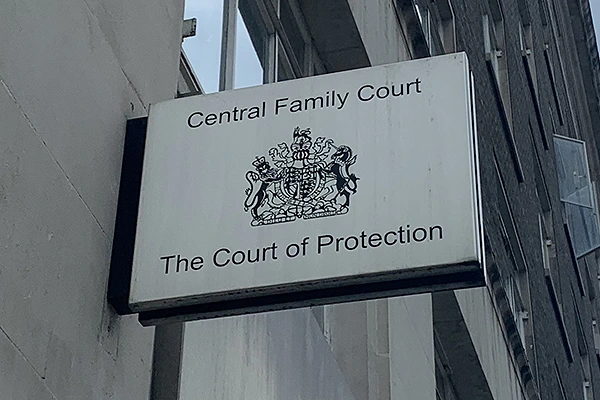





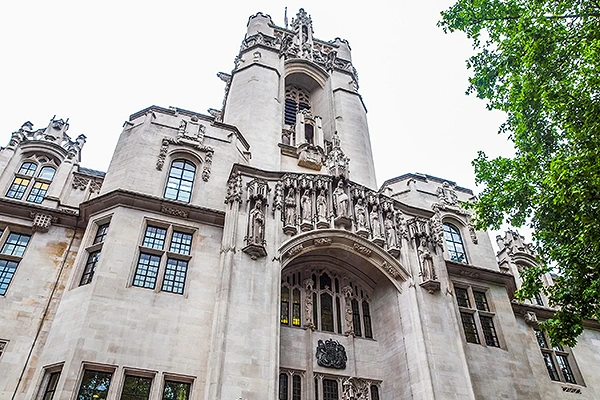








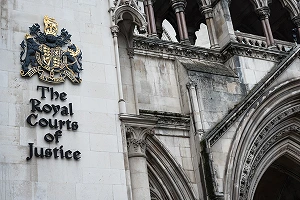






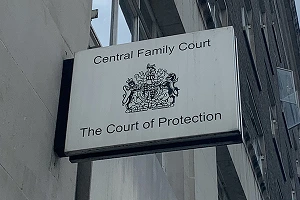
![Break Stuff – The decision in On Tower UK Ltd v British Telecommunications plc [2025] and the impact in respect of break rights in Code Agreements](/images/thumbnails/raxo/tb-w300-h200-cut-int-2825fbef2250bcf14cac590a4433cecf.webp)








































































































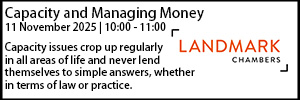
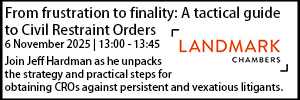
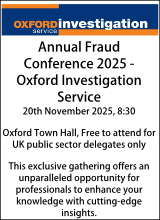
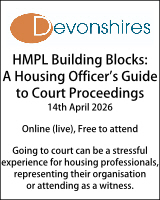




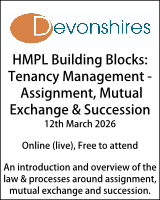
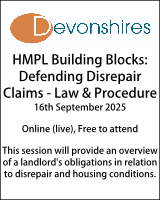

 CUBAS Comprehensive Training & Licencing (Swindon), October 2025
CUBAS Comprehensive Training & Licencing (Swindon), October 2025  Property Law Roadshow 2025 - Cardiff - St John's Chambers
Property Law Roadshow 2025 - Cardiff - St John's Chambers  Planning Enforcement Nuts & Bolts - Ivy Legal
Planning Enforcement Nuts & Bolts - Ivy Legal  Certificate of Lawfulness (LDC) - Ivy Legal
Certificate of Lawfulness (LDC) - Ivy Legal  Hugh James Housing Week 2025
Hugh James Housing Week 2025  Planning Day 2025 - Cornerstone Barristers
Planning Day 2025 - Cornerstone Barristers  Annual Fraud Conference 2025 - Oxford Investigation Service
Annual Fraud Conference 2025 - Oxford Investigation Service  Proportionality after Shvidler - Francis Taylor Building
Proportionality after Shvidler - Francis Taylor Building